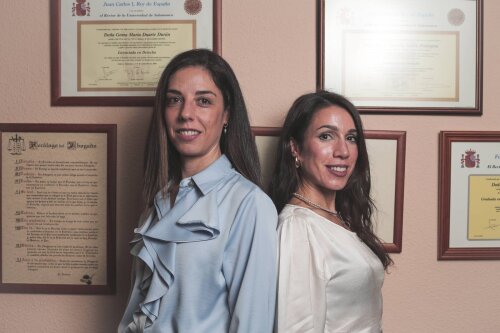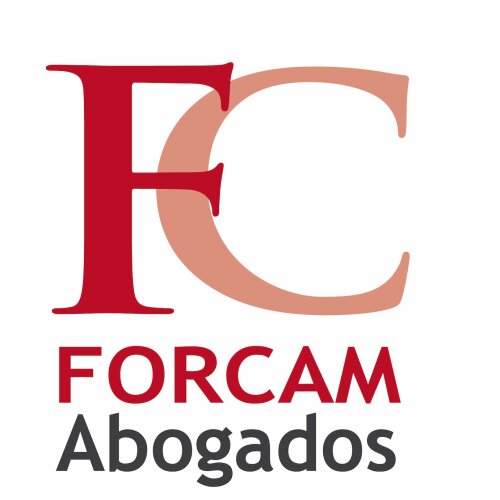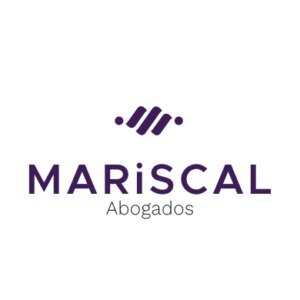Best Corporate & Commercial Lawyers in Madrid
Share your needs with us, get contacted by law firms.
Free. Takes 2 min.
List of the best lawyers in Madrid, Spain
About Corporate & Commercial Law in Madrid, Spain
Corporate & Commercial law in Madrid, Spain, refers to the legal framework that governs the formation, operation, management, and dissolution of companies and regulates commercial transactions and relationships. Madrid is the economic heart of Spain and home to many national and international businesses. The law covers areas such as company formation, mergers and acquisitions, shareholder rights, corporate governance, commercial contracts, intellectual property issues, and dispute resolution. The main objective is to ensure business activities are conducted fairly and transparently, while protecting the interests of all parties involved.
Why You May Need a Lawyer
Many individuals and businesses seek the advice of a corporate and commercial lawyer in Madrid for a variety of reasons. Some common situations include:
- Starting a new business entity and choosing the right legal structure (such as SL, SA, or branch office)
- Negotiating or drafting commercial contracts with suppliers, clients, or investors
- Navigating mergers, acquisitions, joint ventures, or business restructurings
- Resolving shareholder or partnership disputes
- Ensuring compliance with Spanish corporate and commercial regulations
- Protecting intellectual property such as trademarks or patents in business activity
- Addressing corporate governance or board disputes
- Handling insolvency, bankruptcy, or liquidation proceedings
A corporate and commercial lawyer can ensure legal compliance, safeguard your interests, and potentially prevent costly mistakes or disputes.
Local Laws Overview
Spanish corporate and commercial law is mainly governed by national legislation, but local regulations and practices in Madrid can also impact business operations. Key legal frameworks include:
- Companies Act (Ley de Sociedades de Capital): Governs the formation, operation, and dissolution of corporate entities such as Sociedad Anónima (SA) and Sociedad Limitada (SL).
- Commercial Code (Código de Comercio): Sets out rules for business transactions, commercial contracts, and obligations.
- Intellectual Property Law: Protects brands, inventions, and creative works in commercial activities.
- Insolvency Law: Regulates bankruptcy, reorganization, and creditor protections.
- Local and Regional Requirements: Madrid's city and regional governments may impose registration, licensing, or tax requirements specific to business activity in the capital.
Because legal and regulatory requirements can change, it is important to seek current advice tailored to your specific business context in Madrid.
Frequently Asked Questions
What types of companies can I form in Madrid, Spain?
In Madrid, common company types include Sociedad Limitada (SL - similar to a limited liability company) and Sociedad Anónima (SA - similar to a public limited company). You can also set up branch offices, sole proprietorships, or partnerships, depending on your business needs.
Is it necessary to have a local director or shareholder?
Spanish law generally does not require directors or shareholders to be residents of Spain or Madrid. However, appointing a local representative or tax advisor is often recommended for practical and compliance reasons.
What are the main steps for incorporating a business in Madrid?
Key steps include choosing your business structure, reserving a company name, preparing the Articles of Association, depositing share capital (for SAs and SLs), signing the incorporation deed before a notary, registering at the Mercantile Registry, and obtaining tax identification numbers.
What are my tax obligations as a business in Madrid?
Companies are subject to corporate income tax, VAT, and local business taxes. Registration with Spanish tax authorities and regular filing of tax returns are mandatory for all businesses.
How are commercial contracts regulated in Spain?
Commercial contracts are mainly governed by the Commercial Code and Civil Code. Spanish law respects freedom of contract but certain clauses may be restricted or invalidated if they conflict with mandatory local law.
Can foreign shareholders or investors own 100 percent of a Spanish company?
Yes, there are generally no restrictions on foreign ownership of Spanish companies in most sectors. However, some regulated industries may have special requirements or need government authorization.
What are the director’s duties and liabilities in a Spanish company?
Directors must act in good faith, with due diligence, and in the best interest of the company. They can be held personally liable for breaches of these duties, especially in cases of fraud, negligence, or unlawful acts.
How is a shareholder dispute resolved in Madrid?
Shareholder disputes can be resolved by negotiation, mediation, arbitration, or litigation in Spanish courts. Many company bylaws include mechanisms for dispute resolution.
What happens if a company in Madrid becomes insolvent?
Once a company is insolvent, directors must initiate insolvency proceedings. Spanish insolvency law provides for creditor negotiations, restructuring, or liquidation, all under court supervision.
How can I protect my business’s intellectual property in Madrid?
Registering trademarks, patents, or designs with the Spanish Patent and Trademark Office is the primary way to legally protect intellectual property in Madrid. Legal assistance is recommended for registration and enforcement against infringement.
Additional Resources
Individuals seeking advice or support on corporate and commercial matters in Madrid, Spain, can benefit from the following organizations or bodies:
- Mercantile Registry of Madrid (Registro Mercantil de Madrid) - Handles company registration and filings
- Spanish Patent and Trademark Office (Oficina Española de Patentes y Marcas) - Register and protect intellectual property
- Madrid Chamber of Commerce (Cámara de Comercio de Madrid) - Business support, resources, market information
- Spanish Association of Registrars (Colegio de Registradores de España) - Information on registration and compliance matters
- Bar Association of Madrid (Ilustre Colegio de Abogados de Madrid) - Find qualified corporate lawyers and legal advice services
- Ministry of Industry, Commerce and Tourism - Updates on business regulations and initiatives
Next Steps
If you need legal assistance in corporate and commercial law in Madrid, start by:
- Identifying your specific legal needs or questions (such as incorporation, contract disputes, intellectual property, etc)
- Gathering all relevant business and personal documentation
- Consulting a specialist corporate and commercial lawyer based in Madrid to obtain advice tailored to your circumstances
- Verifying the lawyer’s credentials through the Madrid Bar Association
- Requesting a written fee proposal and agreement before commencing work
Taking these steps will help ensure you are properly advised and protected as you navigate the corporate and commercial legal landscape in Madrid, Spain.
Lawzana helps you find the best lawyers and law firms in Madrid through a curated and pre-screened list of qualified legal professionals. Our platform offers rankings and detailed profiles of attorneys and law firms, allowing you to compare based on practice areas, including Corporate & Commercial, experience, and client feedback.
Each profile includes a description of the firm's areas of practice, client reviews, team members and partners, year of establishment, spoken languages, office locations, contact information, social media presence, and any published articles or resources. Most firms on our platform speak English and are experienced in both local and international legal matters.
Get a quote from top-rated law firms in Madrid, Spain — quickly, securely, and without unnecessary hassle.
Disclaimer:
The information provided on this page is for general informational purposes only and does not constitute legal advice. While we strive to ensure the accuracy and relevance of the content, legal information may change over time, and interpretations of the law can vary. You should always consult with a qualified legal professional for advice specific to your situation.
We disclaim all liability for actions taken or not taken based on the content of this page. If you believe any information is incorrect or outdated, please contact us, and we will review and update it where appropriate.
Browse corporate & commercial law firms by service in Madrid, Spain
Madrid, Spain Attorneys in related practice areas.

















